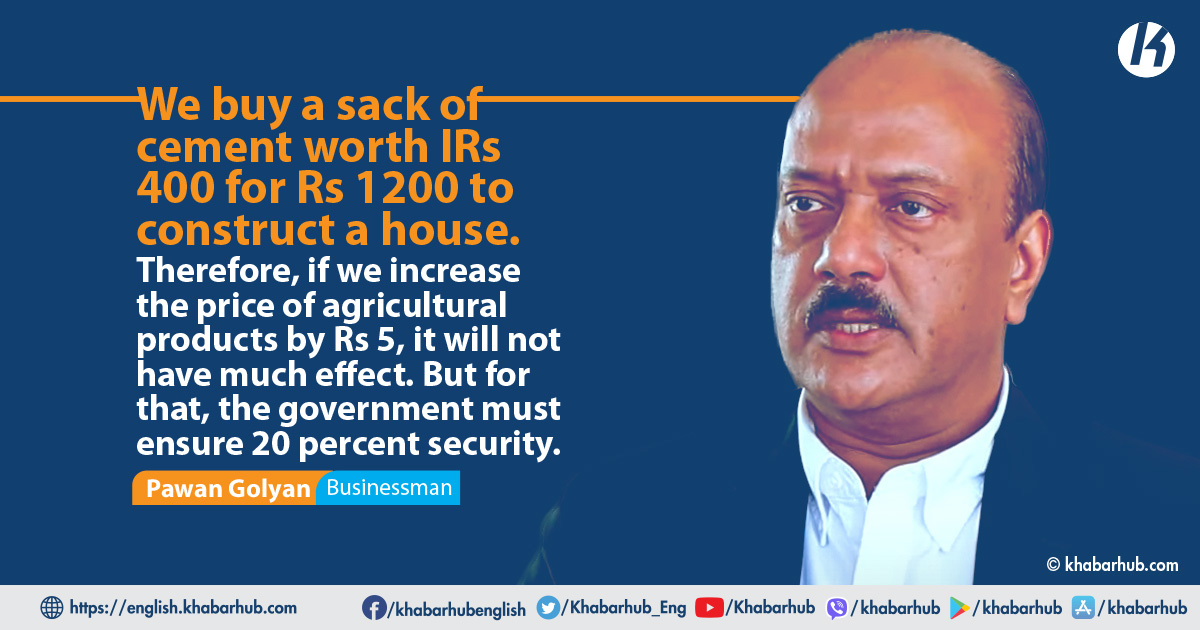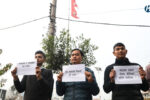Initially, we need to find out the core of the problem when it comes to markets, commodities and the economy.
It has to be analyzed how the amount of money has been spent in the last 3 years. Every sector has earned money. In particular, imports of vehicles and motorcycles have doubled. And, the profits seem to be huge.
The Nepal Rastra Bank in its monetary policy decided to lend money to a refinancing organization or a small and medium organization. But instead of investing it in the proposed intent, the money was spent on land.
This led to an increase in land value. The bank was then compelled to provide loans to farmers. In 3 years’ time, the land price skyrocketed.
Some money also went to the share market, and when the share market declined, the amount also came down. On the other hand, no loan was given to the productive sector even though the data shows that 38 percent has been given to this.
There has been a correlation with remittances when 90 percent of imports came from remittances some 15-20 years ago. Then when we started talking about the economy the government increased the revenue and taxes thinking that this would help the country to prosper. Now it has come down to 40 percent. This is what happens until we move into the productive sector.
And, talking about petroleum products, trucks are transporting them from India at a difference of Rs 35. It has to be equal on both sides to stop the smuggling of petroleum products.
The government should have large foreign reserves. The government should decrease the duty of electric vehicles. However, the business seems to be booming now.
Today, Bangladesh has dumped the garments of ‘Export Supplies and Export Rejection’ in Nepal with a real price of 1 to 2 dollars. But how can a country like Nepal buy that for 2 dollars and make our garments flourish here?
We are giving a loan of Rs. 8 million for a car worth Rs. 3 million to the bank. Lending more than the required amount causes loss to the state. If so, the state has to raise revenue. In agriculture, there is a deficit in the production of farmers.
Only 5 percent has been allocated as agricultural reform fee. Agriculture (excluding politics) had to focus on the protection of agriculture. Otherwise, if we want to leave it like this, we have to move towards the development of those who have given us positive imports.
For this, agriculture has to be made expensive and at least 20 percent of production has to be allocated. Giving a 35 percent production incentive on cement does not increase the price. We buy a sack of cement costing Rs 400 from India for 1200 rupees to construct a house.
Therefore, if the price of agricultural products is increased by Rs 5, it will not have much effect. As soon as that happens, we can stop the import of Rs 3 trillion in a year. But for that, at least 20 percent security should be provided.
India and Nepal have a provision that direct agricultural reform fees should not be less than 9 percent. VAT can be levied or exemption can be given by levying excise duty.
Similarly, Bangladesh has given 82 percent duty on our cardamom and 52 percent duty on our oranges and we have given 5 percent duty. It cannot be stopped. Therefore, the government should take the initiative.
If the dollar is allowed to import a car, a tax of 250 percent will be imposed. This helps to increase remittances in the current situation and has resulted in huge remittances to our parallel economy.
Two-thirds of the people in our country are in agriculture, and if we ask our neighbors to support them, they will really help.
Today, Bangladesh has dumped the garments of ‘Export Supplies and Export Rejection’ in Nepal with a real price of 1 to 2 dollars. But how can a country like Nepal buy that for 2 dollars and make our garments flourish here?
It can provide 200,000 jobs every year. In 2006, Bangladesh and our exports were equal. Now they have reached 50 billion. We are around 10 to 15 million.
We need to work in such a way that the country’s revenue should increase. Imports had to be reduced on the basis of dollars.
The government should not allow goods to be smuggled under any circumstances from India. Ingredients such as pepper and dates should be avoided. We have requested India to buy our electricity for Rs.4 per unit. But, if we give that electricity to our industries, we can increase exports by at least 20 billion in two years.
There is no export incentive when it comes to basic products such as fruits and vegetables. Of course, there is not enough food now. But we can get more benefits by producing organically. If the state gives a 10 percent incentive on that, profit is for sure.
If the dollar is allowed to import a car, a tax of 250 percent will be imposed. This helps to increase remittances in the current situation and has resulted in huge remittances to our parallel economy.
For this, banks are now adding 1 percent interest. That alone is not enough. That too should be given to those who have a bank account.
(Edited excerpt from the opinion of businessman Pawan Golyan in the interaction program on ‘Current Economic Crisis and Solutions’ organized by Khabarhub)









Comment